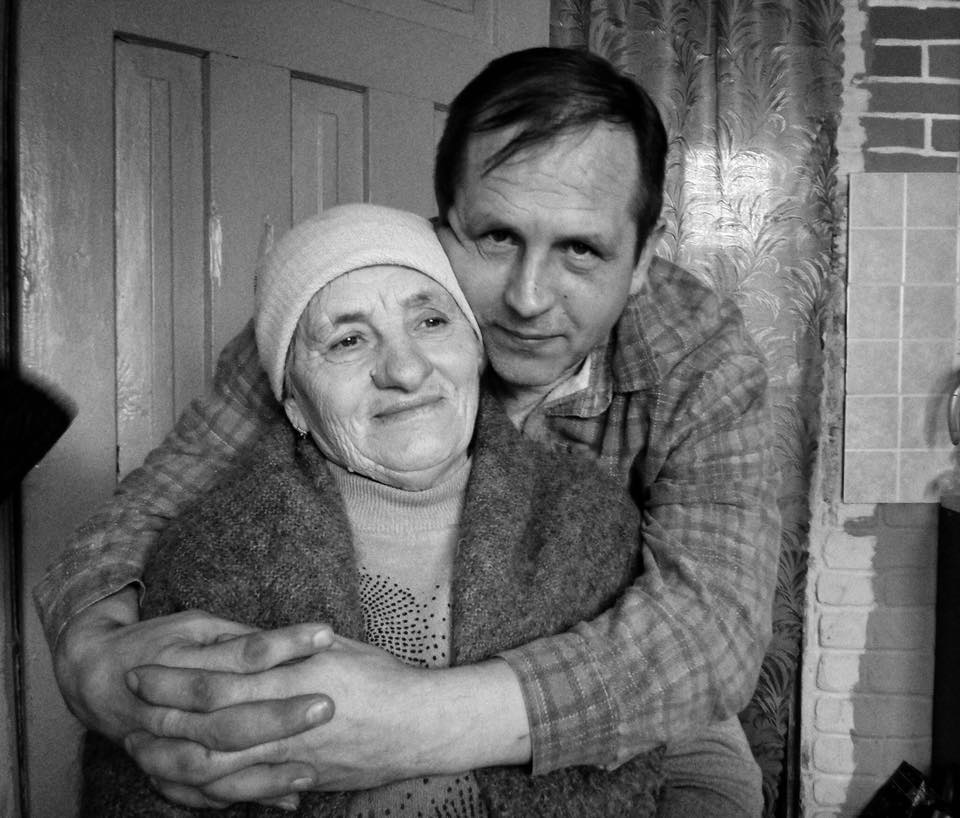Activist jailed for Ukrainian flag in Russian-occupied Crimea after a farcical ‘retrial’

A second ‘judge’ in Russian-occupied Crimea has sentenced 46-year-old Volodymyr Balukh to three years and seven months’ imprisonment on overtly falsified charges after an identical sentence had to be revoked. The second ‘trial’ was just as flawed as the first, leaving no doubt that Balukh is being persecuted for the Ukrainian flag he continued to fly over his home after Russia’s invasion and for his unwavering opposition to Russian occupation.
The supposed retrial had taken place in the same Razdolne District Court, but under ‘judge’ Yelena Tedeyeva. She proved just as willing as her colleague Maria Bedritskaya to ignore the evidence that the charges of possessing ammunition and an explosive substance were rigged. In fact, the trial was marginally more farcical than the first, with Tedeyeva showing no interest in even ensuring that the supposed ‘witnesses’ even appeared in court. As with Bedritskaya, it was clear that orders had been issued which the ‘judges’ found no problem with obeying.
The ‘prosecutor’ Dmitry Korolev had, on Monday, asked for a sentence of five years and one month imprisonment, and a 20 thousand rouble fine, but that was presumably also part of the general imitation of a trial.
The 3-year and 7-month sentence in a low-security prison colony and 10 thousand rouble fine – had first been passed on 4 August 2017. During the appeal hearing on October 2, the High Court in occupied Crimea revoked the sentence, having accepted the submission from lawyer Olga Dinze that Bedritskaya should not have been the judge, as she had been involved in earlier (equally flawed) cases against Balukh.
This was, it transpires, a mere technicality, however it did enable Balukh’s lawyers to secure his release under house arrest in December, since he had by then already been in detention for a year. Balukh was taken back into custody after the sentence was announced on January 16. His mother, 76-year-old Natalya Balukh, who is nearly blind and not in a state to look after the farm, has once again been left alone. If this sentence is upheld, it is likely that Balukh would be illegally moved to Russia making it effectively impossible for his mother and common-law wife to visit him.
Balukh was arrested on Dec 8, 2016 after an unexplained search which allegedly found 90 bullets and several trotyl explosive devices in his attic. He had no record of violence and the constant searches and harassment he had faced since Russia’s invasion of Crimea for his openly pro-Ukrainian position made it inconceivable that he could have held anything illegal in his home. This was one of the reasons why the Memorial Human Rights Centre almost immediately declared him a political prisoner.
There are numerous reasons, including the timing. Balukh was arrested nine days after he nailed a plaque renaming his home No. 18 “Heroes of Nebesna Sotnya St’ in memory of the over 100 Maidan activists who were killed during Euromaidan. He rejected demands from the head of the local council to remove it.
There was an almost unconcealed level of falsification in this case. The officer who had supposedly found the ammunition had not been on duty that day and could not name the individuals who had instructed him to be present or their position in the law enforcement bodies. He also had no explanation for why he had also climbed onto the roof and removed the Ukrainian flag flying there.
The ammunition which the men, wandering in some unclear capacity around the Balukh home, allegedly found, had no fingerprints or other traces to indicate that any member of the family had touched them. Most important, the ammunition in question was on the official register of weapons and ammunition in Barnaul, the Altai region of the Russian Federation, and was produced back in 1989. Neither Balukh nor his common-law wife had been allowed to see what was going on, with the officer who effectively held Balukh prisoner during the ‘search’ unable to give a sensible reason for doing so.
As Balukh noted during his final words to the court on January 15, ‘searches’ had been carried out on December 8, 2016 in both the home owned by Balukh’s wife, and that owned by his mother. Although the latter has four possible attic premises to search, these were not even opened. This clearly indicates that the men knew where the ammunition had been planted and knew there was no need to look further.
In his final address to the court on Jan 15, Volodymyr Balukh refused to speak about the case itself as “it is absolutely clear that this is political persecution for my beliefs. Nothing more.”





